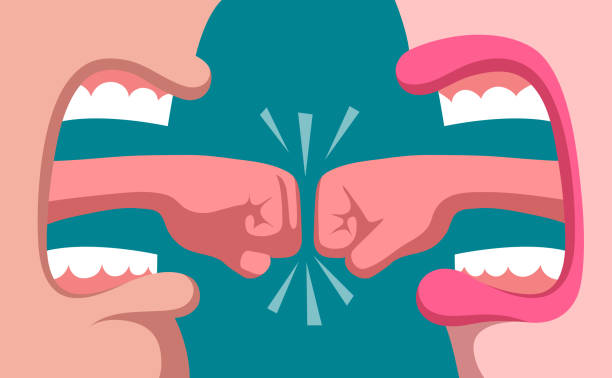Blog
When it really matters, we typically don’t talk about our feelings and what we are longing for, we talk about what’s wrong.
Maybe we try to talk about how we feel but somehow it seems to cause a row. We want for more, we feel let down, we may feel disempowered or downright disappointed at our partners lack of engagement and we wonder do they even care?
This is human nature and the nature of relationships - we all get stuck like this from time to time.
Building on my previous two blog posts which help you understand your ‘love plumbing’ or love languages and ways to build connection, the next piece that helps you start from to unravel your stuckness and move back into happier connection is understanding “Relationship Toxins”.
Let me introduce you if you don’t already know them to The 4 Horsemen of the Apocalypse of Relationship:
· Blaming
· Defensiveness
· Stonewalling
· Contempt
We all deploy these toxins into our relationships – we can’t help ourselves. These are strategies we use to keep ourself safe when we feel threatened, we want to avoid feeling shame or blame.
Each of these has obvious behaviours we can immediately point to and also more subtle manifestations that we only subconsciously register.
Becoming more conscious of these is part of the process of co-creating better relationships.
|
Toxin |
Obvious Behaviour |
Subtle Behaviour |
|
Blaming / Criticism |
**Finger pointing** It’s your fault, how could you? Jumping straight into it, not giving context first Driving, dominating behaviour |
You did… You didn’t… You never… You always… Let me help you with that Suggesting improvements
|
|
Defensiveness |
**Shrinking** It’s not my fault! Refusing to take responsibility Making yourself the victim Not being open to influence |
Explaining yourself… Over explaining… |
|
Stonewalling |
**Silence** Walking away Avoidance Withdrawal Passivity |
Shutting down Feeling that we can’t say what we want to…. Feeling that its pointless as the other person just won't listen or won't get it |
|
Contempt |
** Adrenaline Power** “You F&*^% idiot!” Personal attacks and Demeaning Gossip Disrespectful Tone Hostile humour Undermining |
Eye Rolling Loud volume or low tense tone of voice Sarcasm and sarcastic humour Not paying attention
|
You may already gain some insight from these brief descriptions. Yet it can be hugely helpful working with a trained Relationship Therapist (like me) as we sometimes need someone else to help us, to even be able to become aware of our patterns.
Common patterns I see in relationships:
The most toxic of patterns is 2 people heavy into Contempt. Nasty personal slurs, goading, attack vs attack, this runs a high risk of becoming violent. Something we all need to recognise is that Contempt is the most toxic of all toxins. Simply said, these behaviours are the ones we need to squash most urgently.
Contempt + Defensiveness is a pairing that results in Bully + Victim. As someone who has been bullied and funnily enough coached a number of people who have identified with being a bully at times in their life, I can say neither side comes out the winner. Both have to face and process very difficult emotions.
The more someone withdraws and shuts down into Stonewalling and Defensiveness, the more the other person will gear up into Blaming and Contempt trying to get interaction, to be heard.
What to do that helps:
1. Recognise that all these behaviours are about self defence
2. If you are the Blamey Contempty one – slow down, take a breath, recognise that your behaviour is self-defeating. You’re making you less likely to get what you really want. Realise that you are shutting your other down.
Instead expand your range and say how you ‘feel’ and what you ‘want’.
Feeling words: https://cdn.gottman.com/wp-content/uploads/2020/12/The-Gottman-Institute_The-Feeling-Wheel_v2.pdf
Wants: What you hope for, long for, the positive dream behind the complaint.
“You never have time for me. You just don’t love me any more” becomes
“I feel a distance between us. I love hanging out you, I wish we could go out and have fun and have a laugh together.”
3. If you recognise you Stonewall –realise that what’s important to you is important. I realise it feels like the world may end if you speak up or that its pointless, yet you must speak up and be ‘in relationship’. Tell your other what’s going on inside you. Talk about how you feel. Talk about what you’re afraid of. Talk about what you want.
Not speaking up, desperately hoping that squashing the feelings down and saying nothing will keep the peace is only making the situation in the long run worse. Speak up. You speaking up, helps them not have to yell so loudly.
4. If you are Defensive – self-awareness of this pattern is key. When you notice you’re explaining yourself or defending in some way, relax, perhaps use humour. One of my favourite techniques is 2% truth – let’s say someone comes at me with strong blame:
“You’re always late! I just can’t trust you.”
“You’re right I am late sometimes, I try to fit too many things into one day!”
Energy dynamics are a part of mastering conflict. Energy builds and flows with “yes and”. Energy is interrupted with a no. Energy that flows is healthier than energy that is interrupted and is blocked, which can lead to conflict. Stand up comedians know this, you’ll see they always work with “yes, and”.
5. How important it is to recognise the toxicity of criticism. As someone who has a very growth mindset, it took me a long time to realise that suggestions of improvement, offers of help are actually subtle criticisms. Recognising the sometimes subtle defensive reactions of those sensitive to criticism has helped me realise this.
Stop yourself from offering ideas for improvement and instead give out praise for what is good. Train your eyes and ears to acknowledge others. This is a game changer.
After all, why do we offer suggestions of improvement? Often because we love our other and want the best for them. Criticism disconnects us, leaving our other feeling less and perhaps we too end up a little hurt by the interaction.
The Importance of Repair
An important aspect that helps us co-create better relationships is the concept of repair. We can’t possibly be perfect and not introduce toxins no matter how hard we try.
Relationships are however resilient where there is repair. Repair stops negativity escalating and helps us reconnect after a difficulty.
Read more here https://www.gottman.com/blog/r-is-for-repair/
The Magic Ratio of 5 to 1
Research on thousands of relationships show that for any relationship to be resilient, stable and happy, there needs to be a ratio of 5 positive, constructive interactions for every 1 negative interaction.
As a former criticiser, I realised that all those suggestions are little barbs of nit picking negativity. No wonder we got into a place of being fed up with each other.
Life is hard enough without us taking digs at each other.
Be the bigger person and start to look for the good in your other. Start to pick out what is good. Name it, share it. Give them little big ups.
You will see change in them, maybe not immediately, but if you’re consistently trying and you share with them what you’re doing and why, you will see your relationship shift into the better.
It’s not what you know, its what you do that counts.
One small tiny teeny change in your behaviour will likely make a big difference to your experience.
If you’ve read this post I’d love to know what resonates for you and what you might do differently as a result. Thank you so much for reading.
Add a comment:
YouTube
Here I walk you through step by step many useful and practical techniques for emotional intelligence and how to make friends with your mind.
And provide you with other resources that may help you grow including meditation and more.
Release Fear
15 min guided meditation set to soft music to help you calm, soothe and release fear.








